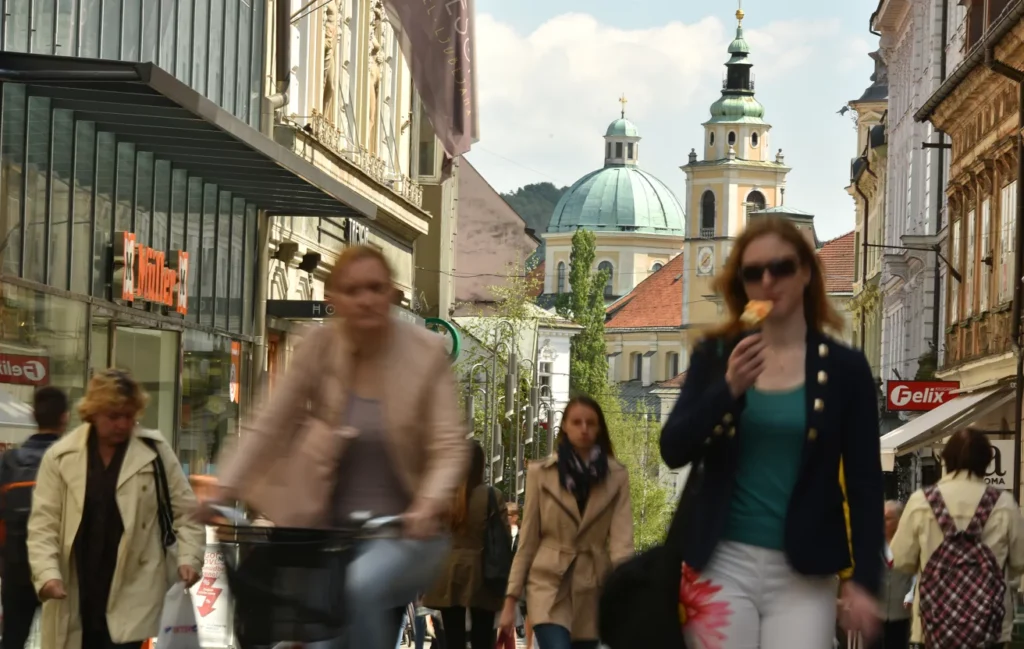The recent report of the Slovenian Institute of Macroeconomic Analysis and Development (UMAR), the Quality of Life in Slovenia – Development Report 2025, reveals that Slovenia enjoys a high quality of life, but low labour productivity remains a key obstacle to economic progress and, consequently, higher incomes.
The Institute’s criticism highlights that Slovenia lags behind the European Union average in productivity (namely, we reached 85 percent of the EU average), which threatens the long-term sustainability of high living standards. To maintain and raise the quality of life, Slovenia urgently needs to increase productivity by investing in knowledge, innovation and a leaner civil service.
Slovenia remains an economically stable EU middle-income country, ranking 15th in the EU in terms of Gross Domestic Product (GDP) per capita in purchasing power parity terms (91 percent of the EU average). However, labour productivity lags behind the European average. Marko Milenković, who summarised the report on state television, pointed out that subjective assessments of quality of life place Slovenians in a high 7th position in the EU, while objective indicators, such as economic development, show a much lower ranking. This disparity between satisfaction and actual economic power calls for measures to raise productivity, as an ageing population makes the sustainability of the current model even more difficult.

Inequalities and limitations of the tax system
Slovenia boasts one of the lowest levels of income, wealth and wage inequality in the European Union, but Milenković pointed out that most Slovenians are “equal at the lower end of the scale”, with the largest share earning between the minimum and the average wage. The tax system further hinders progress by favouring less productive firms at the lower end of the distribution. “The more you move towards high productivity, where high-wage jobs are needed, the bigger the problems become,” explained Peter Wostner from the Institute of Macroeconomic Analysis and Development, reported the national media outlet’s web portal, MMC RTV. This underlines the need for a tax reform to incentivise highly productive firms.
Investment and foreign workers: the wrong direction
The level of investments in Slovenia remains too low, especially in intangible capital such as development and services. The state is investing relatively well, while businesses are lagging behind despite record liquidity. Milenković pointed out that Slovenia prefers to invest in buildings and machinery rather than in development and services, which limits economic breakthroughs. The recruitment of foreign workers (16 percent of the workforce) is also not helping us boost productivity, as most of these workers are low-skilled. Changing the educational structure of foreign workers in favour of the more highly educated could significantly increase Slovenia’s GDP.
The Institute of Macroeconomic Analysis believes that the state should improve the business environment and reduce its traditional intervention in the economy. Even the most productive Slovenian companies are lagging behind the leading European innovators, which are increasing productivity much faster. Increasing investment in knowledge and innovation should be an absolute priority. The Institute report notes that Slovenia has one of the lowest poverty rates in the EU, but a large number of people live just above the poverty line, which poses a risk.

The education level of the population is relatively good, but youth literacy has deteriorated, and creativity is among the lowest in the EU. The health status of the population is above average, as is the preservation of natural resources. However, intensive infrastructure construction and the abandonment of rural areas are having a negative impact on spatial development.
Slovenia enjoys a high quality of life, but low productivity threatens its long-term sustainability. To maintain and raise our living standards, the country urgently needs to increase productivity by investing in knowledge, innovation and a highly skilled workforce. Tax reform, improving the business environment and moving towards bolder innovation are key steps. As Milenković stressed, “there are no easy solutions,” but without decisive action, Slovenia will find it difficult to maintain the high quality of life its citizens want.
A. H.


